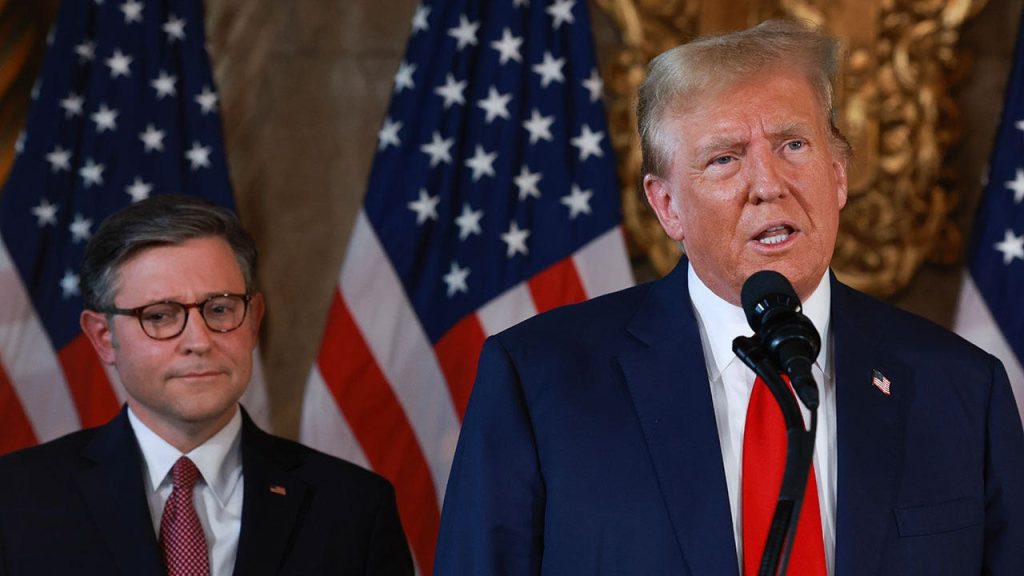Former President Donald Trump is considering implementing a “loan” system for future aid to Ukraine should he become president, as mentioned during a meeting with House Speaker Mike Johnson. Trump suggested that aid could be given in the form of a loan rather than a gift, criticizing previous aid as being distributed without evident improvement in the conflict. This idea is not new, as Trump previously discussed the possibility of aid in the form of a loan with zero interest that would only need to be repaid if Ukraine becomes financially successful in the future.
Trump has also been vocal about his belief that European countries should contribute more to supporting Ukraine due to their proximity and immediate interest in the conflict between Ukraine and Russia. He emphasized the need for Europe to step up financially and contribute to equalizing the burden of aid distribution, stating that they are affected more by the conflict than the United States. Trump’s comments at the meeting with Johnson focused on the importance of European countries taking more responsibility in providing financial support for Ukraine.
The meeting between Trump and Johnson also addressed the topic of “election integrity,” with the former president voicing his support for the speaker as his backing among some GOP lawmakers has waned. Trump’s allies in the House have taken a strong stance against continued financial aid for Ukraine, arguing that foreign conflicts are not the concern of the United States and should not be funded by American taxpayers. This position reflects a growing sentiment within the Republican Party that opposes U.S. intervention in foreign wars.
Trump’s proposal for a loan system for Ukraine aid and his calls for European countries to contribute more financially to the conflict highlight his approach to foreign policy and international relations. By suggesting a different form of aid distribution, Trump is seeking to reshape the way the United States supports its allies abroad, emphasizing the importance of financial accountability and burden-sharing among allies. His comments also underscore his belief that the United States should prioritize its own interests and focus on domestic issues rather than getting involved in foreign conflicts.
Overall, Trump’s consideration of a loan system for Ukraine aid, his criticisms of current aid distribution, and his emphasis on European countries contributing more financially all reflect his approach to foreign policy and his vision for U.S. involvement in international conflicts. As he continues to weigh a potential return to the presidency, Trump’s statements on these issues indicate how he would prioritize American interests and financial responsibility in global affairs if he were to reclaim the presidency. Ultimately, his proposal for a loan system and calls for European countries to step up financially demonstrate his commitment to reshaping U.S. foreign policy in a way that prioritizes American interests and financial accountability.


